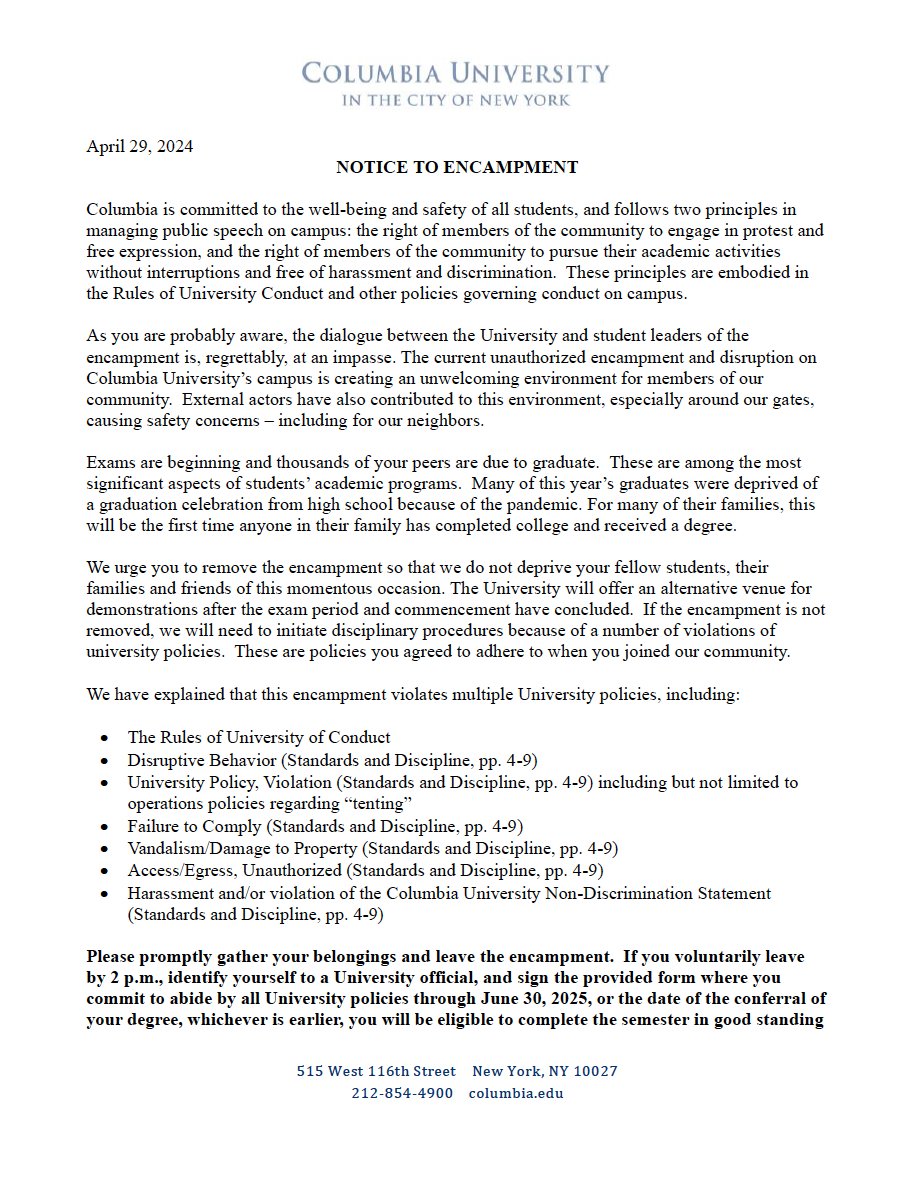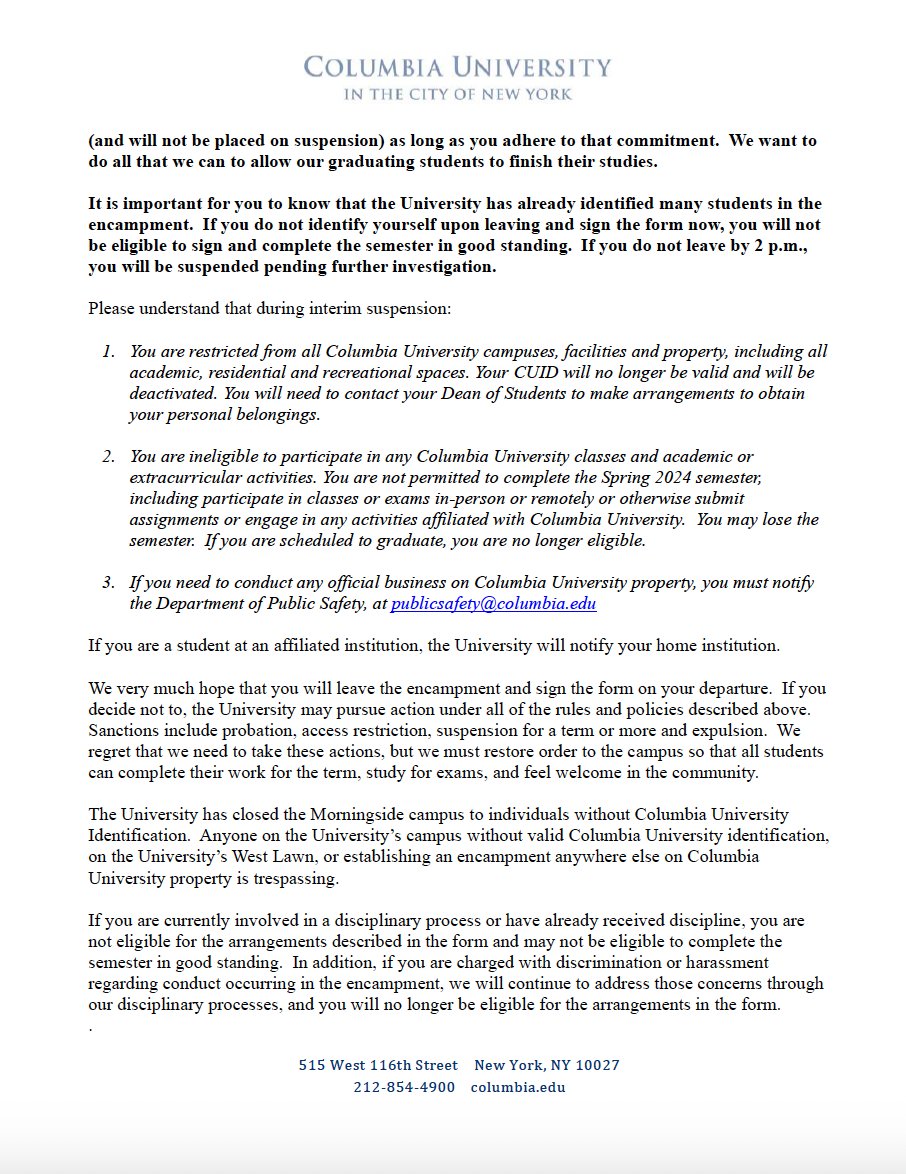/trim-feed/media/media_files/499e72de7ec9ed81c12975251a239b88d692cff1aa40688932a66ccddd1cd316.jpg)
Columbia University Threatens Suspension for Students Who Refuse to Leave Protest Encampment
Columbia University has issued an ultimatum to students participating in a pro-Palestinian protest encampment on campus, threatening suspension if they do not vacate the area by a 2 p.m. deadline on Monday. University President Minouche Shafik announced that negotiations with the protesters have broken down and the university will now take disciplinary action against those who do not comply with the order to disband the encampment.
The protests, which began on April 17, have been demanding that Columbia divest from companies that profit from Israel's military actions in Gaza. However, the university has flatly rejected this demand. Shafik stated that the protest has created an "intolerable atmosphere" on campus, causing discomfort for many Jewish students and leading some to leave the university altogether. "The encampment was making Jewish students uncomfortable, causing many to leave campus," Shafik said.
In an effort to resolve the standoff, Columbia offered several concessions to the protesters, including increasing transparency around the university's investments, expediting the review process for divestment proposals, and investing in health and education initiatives in Gaza. However, the protesters deemed these measures insufficient and talks ultimately reached a deadlock.
With final exams and graduation ceremonies approaching, the university is now taking a harder line against the encampment. Students have been notified that if they voluntarily leave the protest site by the 2 p.m. cutoff, identify themselves to university officials, and sign a pledge to abide by school policies through June 2025, they will be allowed to complete the semester without facing suspension. But those who refuse to vacate could face serious consequences. "The university has already identified many students in the encampment and will suspend them if they do not leave," a university spokesperson confirmed.
Why this matters: The Columbia University protests reflect a growing wave of pro-Palestinian demonstrations on college campuses across the United States. These protests have led to significant disruptions to campus life, including altercations, vandalism, and a climate of fear and intimidation for Jewish students. As the Israeli-Palestinian conflict continues to inflame tensions globally, universities are grappling with how to balance free speech rights with the need to maintain a safe and inclusive learning environment for all students.
Similar protests have occurred at other major universities in recent weeks, including the University of Southern California, which canceled its main graduation ceremony due to the unrest, and Virginia Tech, where police forcibly removed protesters from an encampment on Sunday night. With the 2 p.m. deadline looming, all eyes are now on Columbia University to see if the administration's threats will succeed in bringing the weeks-long demonstration to a close. A university spokesperson reiterated that while Columbia respects the right to protest, "students cannot disrupt campus life or harass and intimidate fellow students and community members."
Key Takeaways
- Columbia U. orders pro-Palestinian protesters to vacate campus by 2 PM or face suspension.
- Protesters demand divestment from companies profiting from Israel's military actions in Gaza.
- University offers concessions, but talks reach deadlock; says protest creates "intolerable atmosphere".
- Similar protests disrupt campuses nationwide, raising concerns over balancing free speech and safety.
- Columbia warns students cannot "disrupt campus life or harass and intimidate" others.
/trim-feed/media/agency_attachments/viQLsaaKO7lGeHnDO2Yi.png)
 Follow Us
Follow Us
